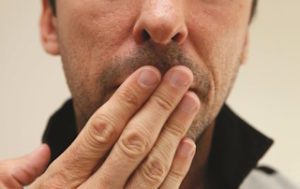How to Recover After a Social Faux Pas
Social faux pas happen when you have ADHD. You may miss social cues about how someone feels or read their face incorrectly and miss their intention when they speak. That momentary misstep may leave you feeling like you have fallen off the edge of the earth, causing you to shut down, apologize too much, or relive the mistake for days.
 For most people, reading body language and facial expressions are skills they practice. No one is perfect, and no one reads everyone’s facial expressions right every time. An ADHD brain, however, can cause other behaviors that lead a person to miss the clues that indicate how to best proceed in a given situation.
For most people, reading body language and facial expressions are skills they practice. No one is perfect, and no one reads everyone’s facial expressions right every time. An ADHD brain, however, can cause other behaviors that lead a person to miss the clues that indicate how to best proceed in a given situation.
It’s hard to say what causes people with complex internal environments to miss clues about what another person is feeling. And really, it doesn’t matter why it happened.
When you realize you made a misstep, you want to know what to do next. You can analyze “why” it happened later.
Here are five steps to help you recover after you make a social blunder.
1. Shift your mindset to the learning zone.
Try to shift your thinking so that you look at each social interaction as a chance to practice and grow. Tell yourself that you’re in the “learning zone” so there’s less pressure to be perfect and always get it right. In this learning mindset, no one interaction is a mistake but rather a chance to learn and do things differently next time.
Consider adding to your learning practice some positive self-talk to highlight what you did right and what you’ve learned along the way.
2. Have a script in your back pocket.
A script would be a set of words you say or behaviors you do when you miss a social cue and make a social faux pas. It’s a way of planning and preparing what you will say and do the next time something like this happens. It’s also like insurance or money in the bank so you are not panicked when you say the wrong thing.
A few good ones to use are:
- “Oops, I got carried away, sorry I will learn to reign myself in.”
- “Sorry, that touched a nerve, obviously.”
- “Oops, that was an overshare, I guess I am tired.”
- “Oh gosh, that came out the wrong way.”
- “Let me rephrase that—I sound like a judge not a friend.”
These little phrases signal to someone that you acknowledge your faux pas and that you want to move on. You realize your error and you want to repair it and move forward positively.
3. Avoid apologizing too much.
When you miss a cue you may feel you are in the spotlight, but other people may not have noticed. Apologizing should be in proportion to the error.
To know how much needs to be said, evaluate the social blunder without your own judgment. In other words, what would someone you truly trust say happened? Did your actions cause pain or disrespect? To what degree? Did you hurt someone? How deeply? Was it truly an accident? How much harm was caused by your behavior?
Ideally, you want to avoid making assumptions and resist the urge to send a flurry of messages that potentially create more awkwardness. Not every blunder is as painful to others as you may worry it is. And, if your tendency is to overapologize or to inflate a small gaffe, then pause on sending texts, entering into apologetic speeches, or otherwise drawing attention to something that might just be awkward.
4. In the moment, find calm and get centered.
Have a few strategies in your back pocket to help you cope with the flood of emotions and embarrassment that result from making a social faux pas. Then, calm your limbic system so you stop the cycle of fight, flight, or freeze reaction that naturally occurs for you when moments like this happen. That hot feeling that you’re in the spotlight along with the barrage of emotions gurgling in your brain can make carrying on with conversations difficult. Step away, go to the restroom, breathe deeply, take a walk, and give yourself a moment to reset your emotions so you can start to think again. Then you can decide what’s best to do from a calmer and more logical place.
5. Prepare for rumination.
Rumination is when you think about something over and over again, and it’s a hallmark behavior for people with ADHD, so prepare for this to happen. And honestly, reliving the painful moment can last days, so don’t be surprised if the stress you feel afterwards is more like a hangover than a single incident.
When you have strategies at the ready, you can do what’s called a “pattern interrupt,” which is just what it sounds like: a way of interrupting some behavior or habit you have with something different to help alter what’s going on inside of you. Some pattern interrupts call for changing your environment by doing things like taking a walk or going to the gym—physically removing yourself from the setting. Others can be as simple as listening to music, meditating, or seeking out a pleasurable activity.
WHEN YOU END UP in this kind of sticky social situation, you really just read the room wrong somehow. The good news is that you can correct it. Like so many people with ADHD, because of your history of missing social cues your pattern has become to be very hard on yourself.
You can recover from this missed cue. Even when it feels like a giant rock pressing on your chest, if you practice breathing, taking a break, and gaining new perspective, the situation will get resolved with less stress on everyone.


 Caroline Maguire, MEd, ACCG, PCC, earned a master’s degree at Lesley University with a specialization in social emotional learning (SEL). She is the author of Why Will No One Play with Me, an award-winning book designed to coach emotional regulation, social and self-awareness, and responsible decision-making skills. She founded the Fundamentals of ADHD Coaching for Families training program at the ADD Coach Academy, which is accredited by ICF. Visit her website,
Caroline Maguire, MEd, ACCG, PCC, earned a master’s degree at Lesley University with a specialization in social emotional learning (SEL). She is the author of Why Will No One Play with Me, an award-winning book designed to coach emotional regulation, social and self-awareness, and responsible decision-making skills. She founded the Fundamentals of ADHD Coaching for Families training program at the ADD Coach Academy, which is accredited by ICF. Visit her website,